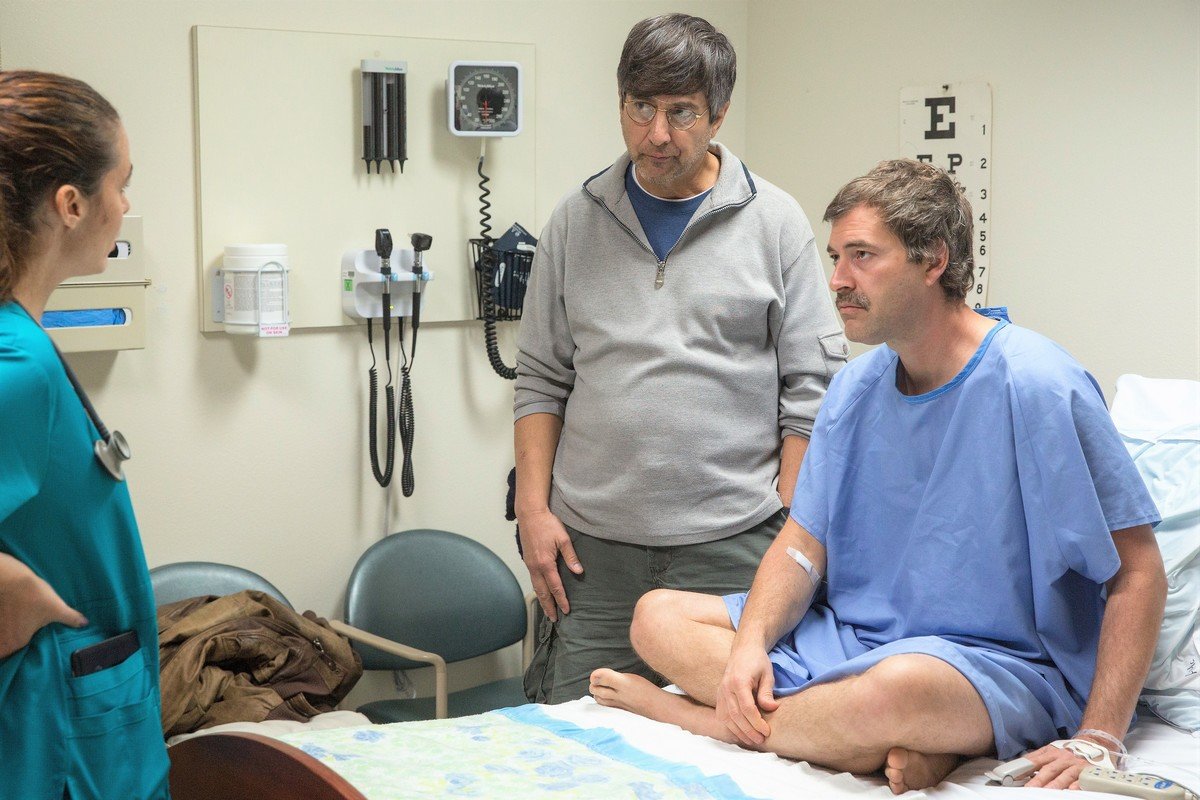

Now available on Netflix, Paddleton offers a pleasantly quirky, sympathetic portrait of two friends (Ray Romano and Mark Duplass), as one, a terminal cancer patient (Duplass), seeks assisted suicide.
Drawing attention to the hot button topic on which the Church has a clear stance, it will be enough for some readers to learn that the film’s overall position is not very clearly the Church’s.
The best word, perhaps, for the film’s overall moral position on the matter is “uncritical.” There is little to suggest that what is happening might be fundamentally misled, and for this reason some viewers will prefer to distance themselves from such a representation straight out of the gate.
To be fair to the film, although it does not overtly criticize its character’s decision to end his life prematurely, neither does it aggrandize it.
The film, in fact, is not primarily about deciding to die at all. It is more about deciding to love even in the face of dying, focusing upon the character of a friendship that is more committed to accompanying rather than taking a stand.
The Church does well in taking a consistent stand on the side of life from conception to its natural end, as do Christians, as citizens of this-worldly states, in advocating for this value to be reflected in the laws of the land.
At the same time, we can distinguish between the way a particular Christian might engage with this topic at the level of policy, since it affects our common living, and on the other hand how the same Christian might engage with someone who in his individual life does not share the Church’s convictions.
For example, I might argue that no one should be compelled to pay for abortion (even indirectly through taxes), and then approach the topic quite differently with a friend who is determined to seek one. At some level I will probably be morally obliged to register my opposition, but if despite my dissuasions she remains determined, I have another choice to make: to step away from preserving our friendship for the sake of voicing the principle, or to step away from voicing the principle for the sake of preserving our friendship.
Either decision, I think, might be the best choice. It comes down to prudential discernment in an imperfect circumstance.
In the case of Paddleton, some well-intentioned viewers might decide to steer clear of it on principle, condemning it because it doesn’t condemn euthanasia. Others might sympathize with its depiction of what some call an apostolate of friendship, a love that does not shrink from sin but offers accompaniment to the end.
Both responses, I daresay, can befit the Christian. On one hand, Jesus Christ is the righteous prophet who stands at a distance and condemns sin. Yet Jesus is also the healer who draws near to sinners, even as we sin.
For my part, I liked Paddleton. I am also prepared to be friends with those who don’t.
(Originally published in The B.C. Catholic)
